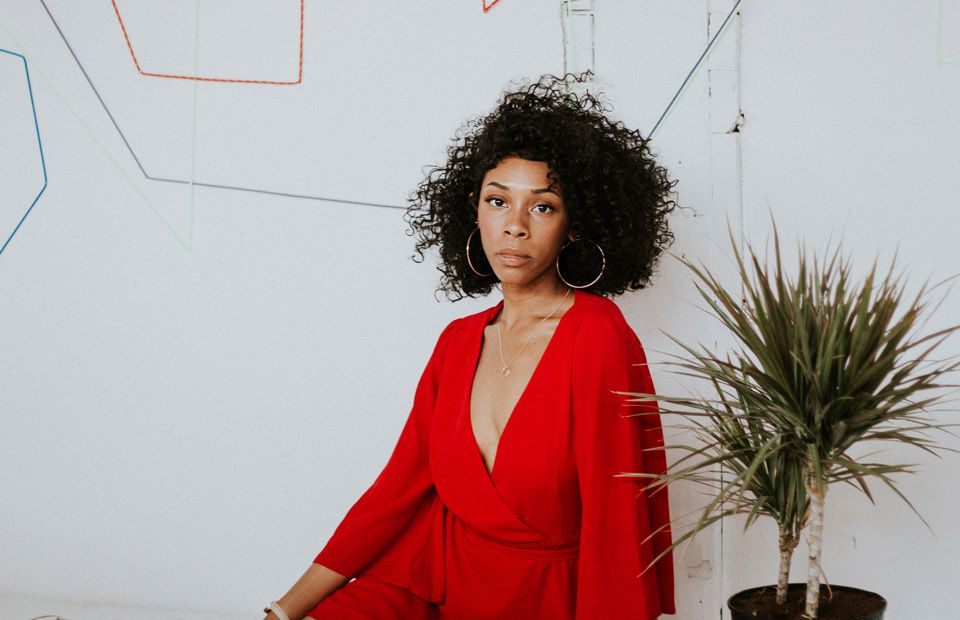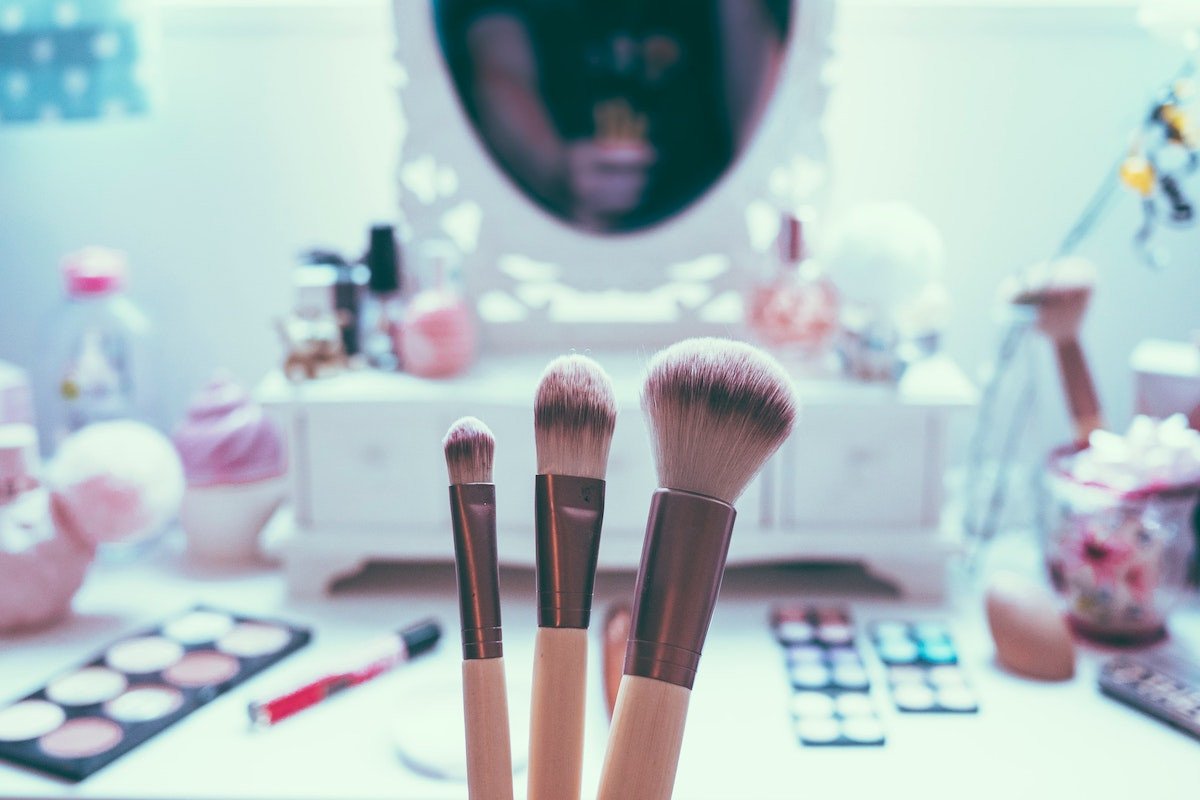In 2011, I was confident to enter the workforce after graduation. I had followed all the advice to set myself up for success, including completing five internships.
Many college graduates who received their degrees between 2007 and 2011 know how hard it was to enter the workforce during a horrible job market. However, there is another factor that made a difficult job market even more of an uphill battle for me: being a Black woman.
As the rate in which Black women obtain degrees increases, only 8 percent are employed in the private sector, according to the
National Domestic Worker’s Alliance’s recent report on the status of women in the workforce leadership. The report also showed that college-educated Black women and men are given fewer full-time employment opportunities since the Great Recession, with 55.9 percent working in an occupation that did not require a degree, leaving them underemployed with lower wages and college debt.
Ify Walker, of the talent-matching company
Offor Walker Group, summed up the challenges unique to women of color in her
#DearBlackWomen post on LinkedIn. Her post explained that for us, our job searches will “take longer than is just” the length of our job search due to the pronunciations of our names, the feeling of never being good enough based on interview feedback, and watching people get jobs who are less qualified. Walker’s LinkedIn post reminded me of those times when I walked into offices and watched facial expressions change when they saw that I am a Black woman. It reminded me of the multiple times I changed the pitch of my voice and found ways to make sure people were comfortable around me so that I could fit in.
The toll that the job search has on Black women can be daunting. Just ask Morgan Jerkins, an Ivy League grad and journalist who recently shared her job-search struggles on a Twitter thread. She tweeted:
"After I graduated college, that year was probably the worst year of my life. I felt like giving up writing every single day. I couldn’t “have potential” or be “good.” Good is for the white women. I had to be fucking extraordinary, and it almost destroyed me. I never want another [person of color] to go through what I went through. I thought my light was dimming all the time. I felt worthless in so many ways."
In three tweets Jerkins summed up what it feels like to be a Black woman on a long road to fair employment and wages.
Black women are in fact working harder to get less.
WORK TWICE AS HARD AND BE TWICE AS GOOD
From childhood, Black girls and boys are told by our parents that we have to work twice as hard and be twice as good in order to get the same opportunities as our white peers. Once we enter the real world, we learn that twice as good isn’t okay, we really have to be extraordinary.
This ingrained feeling is supported by the data: the
Economic Policy Institute analyzed the wage gap between Black women and white women, and found that Black women are in fact working harder to get less. “Black women work more hours than white women, and have increased work hours by 18.4 percent since 1979, and continue to increase their annual hours and weeks worked per year,” the study showed. Despite the increase of hours work each year, Black women are paid only 63 percent of what white men make, and 17 percent less than what their white women counterparts bring home.
I was prepared to work twice as hard, but I wasn’t prepared for the bias that would mean that I couldn’t even get my foot in the door to start working.
Although my resume proved that I could fulfill the job duties, hiring manager after hiring manager saw my Blackness.
THE PROBLEM OF CULTURE FIT
There were times that I made it to the final round of interviews, only to be told that I wasn’t “a good cultural fit.” Although companies claim that they are striving for diversity and inclusion to help solve their homogenous workforces, the phrase “cultural fit” left me puzzled because no one would really say what they meant by the term. Although my resume proved that I could fulfill the job duties, hiring manager after hiring manager saw my Blackness, and perhaps even my mild manner of speaking, and deemed that I was wasn’t a fit for their culture.
According to
Lars Schmidt, founder of Amplify Talent and a regular
Fast Company contributor, the phrase has been used by interviewers to reject candidates and has become the embodiment of unconscious bias. “A lot of organizations don’t provide adequate training to their hiring managers and recruiters on how to recognize and account for unconscious bias in the interview process,” Schmidt told me.
“To say, ‘I’m not going to hire someone based on cultural fit,’ for that to really have merit, you have to have a clear definition on what your cultural values and pillars are, and what designates fit,” he explained. “Most companies don’t even have that to say what their fit means because it’s a nebulous big thing that they can’t really quantify.”
FEELING LIKE YOU AREN’T ENOUGH
“I would hear things like she’s too smart or we really don’t know if she has the presence that we need or the polish that we need,” says Walker of the feedback her executive search firm has received from some companies about Black women candidates. But Walker says the candidates were left feeling like they had done something wrong. “No one was telling Black women, ‘It’s not you. It’s them [the organizations].’ You think that not getting a job means you’re a failure when you are not.”
While Black women picked themselves apart for not getting the job they wanted without clear reasons why, organizations were left not knowing that unconscious biases were taking place. “Organizations want to fixate on the myth of the pipeline problem and not wanting to lower the bar, when the bar that we see lowered consistently is the bar for white leaders,” Walker says.
THE IMPACT
By the time I finally landed my first job after graduation, it was only part-time and didn’t require a college education. That surely will have a lasting impact on my career in terms of salary and promotion if I had continued to pursue a career path with my degree.
As Cecilia A. Conrad, vice president and dean of faculty at Scripps College, has written in the
American Prospect, “When a young Black woman finally gets her first job, she will have accumulated less work experience than her same-aged white counterpart and thus will have an earnings disadvantage that persists over her work life.” The later Black women begin their careers, the longer and harder time of getting promotions and the wage gap continues to widen. Two years of piecing together a career that I wanted with part-time work, freelance gigs, and temp jobs put me behind my peers who were accepting their first promotion by the time I had my first full-time role in my field.
A 2014 report from the
Center for Economic and Policy Research found that 55.9 percent of employed Black recent college graduates were working in an occupation that did not require a four-year college degree compared with 45 percent of all recent college graduates. Black graduates are also more likely to be underemployed than all graduates across all age levels and across most fields.
Today’s young and ambitious Black woman who aspires for a C-suite position will see fewer women who look like her as she fights to get promoted up the corporate ladder. For women of color coming into the workforce after graduation, only 17 percent are getting hired for entry-level positions, compared to 31 percent of white women, according to the
Women in the Workplace 2017 report by LeanIn.Org and McKinsey & Company. What’s even more disturbing is that the study also shared that the percentage of women of color decreases with each level of the corporate pipeline.
If you aren’t able to find your footing in corporate America, you can create your own opportunities or use your experience to help another Black-owned business thrive.
THE PROBLEM ISN’T YOU
I did everything that my professors, alumni network, and career articles said I should do to be prepared to begin my career, but for some reason, I could never get the job offer. I now know there were elements that were simply out of my control. “It’s unfair, but it’s also sadly normal. You don’t need to feel alone or that the problem is you. It’s not you, but it is the society and the structure that we live in,” Walker shared with me. Sometimes it’s out of your hands, but it’s not a reason to give up.
One in 30 C-suite positions belong to women of color, but those who hold the title are making the noise we need to help bring attention to the disparities in the workplace, like TaskRabbit CEO Stacy Brown-Philpot. As they break ceilings and open doors to pull other Black women up, other Black women are becoming entrepreneurs, making them the
fastest-growing group of business owners.
If you aren’t able to find your footing in corporate America, you can create your own opportunities or use your experience to help another Black-owned business thrive. Walker suggests being aggressive for opportunities by looking for the work that no one else wants to do. “Try putting yourself in places where others might say, “I don’t want to do that, or that’s too hard,'” Walker advised.
Resources like
The Memo can also help prepare you for your job search with articles, virtual workshops, and interactive events with a community of support from Black women looking to find their seat at the table. Job-search tools like
Jopwell lists open roles at Fortune 500 companies who are looking for diverse talent to fill those positions. Sydney Brunson, a diversity programs specialist at Pinterest, managed to find a job during her senior year of college by opening up her career options. “I was fortunate in finding a job at IBM during my senior year of college,” she told me.
“However, I will say that had I solely focused on jobs and careers in public relations or communications, my story might be different. I would encourage students to broaden their horizons and scope when searching for jobs,” Brunson shared. She asks her mentees what they want to do in their careers, and she challenges each of them to find at least five different paths or career tracks in order to get there. “I never knew tech was for me, but now I couldn’t see myself working in any other industry,” she added.
Countless studies have shown that diverse teams outperform more homogenous teams.
WORKING TOWARD CHANGE
Pinterest made headway when it shared a public update on its diversity progress and initiatives to eliminate bias in hiring. In 2015, Pinterest outlined its diversity goals to have the public hold the company accountable for its progress.
Although the numbers are still low,
it doubled the hiring of underrepresented ethnic backgrounds to 7 percent. Pinterest also includes an organizational-wide
unconscious bias training for all new employees to help their employees learn to master unbiased decision making. “We understand that not only is hiring diverse employees the right thing to do, but it also builds a stronger business. Countless studies have shown that diverse teams outperform more homogenous teams. It’s a no-brainer for us,” Brunson told me.
At the Offor Walker Group, Walker is training her organizational clients on the simple premise that “genius is equally distributed; access is not. We share some of the most common biases and examples of what these biases might sound like in action (e.g., ‘too smart’ and ‘one-trick pony,’ and ‘she’s so articulate’). Then we have each member of an interview team identify their own biases and how it plays out in interviews right before they go into the interview day with four to six candidates,” she explained. With practice and new perspective, Walker’s interviewers develop their own hacks to disrupt their own bias, like imagining a candidate is white, and thinking of how their reaction might be different.
It’s easy to feel defeated early in your career when Plan A doesn’t work out. Black women have to remember to not carry the blame when their job search is taking longer than expected. Furthermore, companies need to start to understand the work that needs to be done to bridge the racial wage gaps, and putting an end to other labor market obstacles is the motivation we need to make strides for Black women’s livelihoods.
More From Fast Company:










